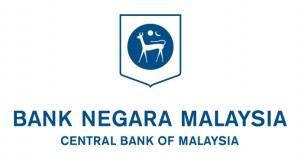
Companies Commission of Malaysia
The Companies Commission of Malaysia (SSM) is a government agency responsible to incorporate companies and register businesses as well as to provide company and business information to the public. It functions is to ensure compliance with business registration and corporate legislation through comprehensive enforcement and monitoring activities under the Companies Act 1965 (Act 125); Registration of Businesses Act 1956 (Act 197); Trust Companies Act 1949 (Act 100); Kootu Funds (Prohibition) Act 1971 (Act 28); Limited Liability Partnerships Act 2012 (Act 743); Companies Regulations 1966; and Registration of Businesses Rules 1957. See more in the link below:
Link to Companies Commission of Malaysia. Click here.
Companies Act 1965
The Companies Act 1965 sets out the legal basis on which companies are formed, operated and managed. It also sets the rules on how directors, shareholders and other stakeholders can exercise their rights as well as how their powers can be accounted for. See more in the link below:
Link to Companies Act 1965. Click here.
Limited Liability Partnership Act 2012
The Limited Liability Partnerships Act 2012 provides for the registration of an entity that combines the characteristics of a company and a conventional partnership. The LLP is suited for professionals service providers such as accountants and lawyers, small and medium enterprises. See more in the link below:
Link to LLP Act. Click here.
Partnership Act 1961
Partnership is the relation, which subsists between persons carrying on a business in common with a view of profit’. The Partnership Act 1961 sets out the legal basis on which partnerships are formed, operated and managed. It also sets the rule on how partners and other stakeholders can exercise their rights and duties as well as how their powers and obligations can be accounted for. See more in the link below:
Link to Partnership Act. Click here.
Practice Notes issued by SSM
The practice notes are issued by SSM to highlight current or emerging issues in a particular areas of practice. See more in the link below:
Link to CCM practice note. Click here.
Bank Negara Malaysia (BNM)
Bank Negara Malaysia (the Central Bank of Malaysia), is a statutory body that is responsible for the development of a sound, resilient, progressive and diversified financial sector. See more in the link below:
Link to BNM. Click here.
Financial Services Act 2013
The act governs the conduct and supervision of financial institutions in Malaysia. It provides, amongst other matters, that prior written approval of Bank Negara Malaysia must be obtained for property or liability to be insured, with an insurer outside Malaysia; accepting deposits without a licence granted under the FSA is prohibited. Issuing or facilitating a person to issue an advertisement in relation to making such illegal deposit is also prohibited; use of certain words (e.g. bank, insurance, takaful) capable of being construed as indicating the carrying on of businesses which are regulated under the FSA/IFSA is not allowed, except with the prior written approval of Bank Negara Malaysia. See more in the link below:
Link to Financial Services Act 2013. Click here.
Anti Money Laundering Act and Terrorism Funding Act 2001 (AMLATFA)
There is a common obligation in the AMLATFA not to facilitate money laundering and terrorism financing. A reporting institution is required to take the necessary steps in order to prevent such illegal activities and have a system in place for reporting suspected money laundering and terrorism financing transactions to the authorities. See more in the link below.
Link to AMLATFA 2001. Click here.

Malaysia Co-operative Societies Commission
Cooperatives is a legal entity incorporated with the objective to improve the economic well-being of its members in accordance with the principles of a co-operative. The Malaysia Co-operative Societies Commission or the Suruhanjaya Koperasi Malaysia (SKM) is responsible to incorporate co-operative societies as well as to provide information to the public regarding co-operatives. It functions is to ensure compliance with co-operative registration and co-operative legislation through comprehensive enforcement and monitoring activities under the Co-operative Societies Act 1993.
Co-operative Societies Act 1993
The Co-operative Societies Act 1993 sets out the legal basis on which co-operative societies are formed, operated and managed. It also sets the rules on how directors, shareholders and other stakeholders can exercise their rights as well as how their powers can be accounted for. See more in the link below:
Link to C0-operative Societies Act 1993. Click here.

Farmers’ Organisation or Pertubuhan Peladang
In Peninsula Malaysia, agro-based and fishery co-operatives supervision were handed over to the Farmers’ Organisation Authority or Lembaga Pertubuhan Peladang (LPP). Farmers’ organisation or pertubuhan peladang is structurally a co-operatives, a legal entity incorporated with the objective to improve the economic well-being of its members in accordance with the principles of a co-operative. LPP is responsible to incorporate farmers’ organisation as well as to provide information to the public regarding farmers’ society. It functions is to ensure compliance with farmers’ organisation registration and legislation through comprehensive enforcement and monitoring activities under the Farmers’ Organisation Act 1973. See more in the link below:
Link to LPP. Click here.
Farmers’ Organisation Act
The Farmers’ Organisation Act 1973 sets out the legal basis on which farmers’ organisations are formed, operated and managed. It also sets the rule on how directors, shareholders and other stakeholders can exercise their rights as well as how their powers can be accounted for. See more in the link below:
Link to Farmers’ Organisation Act 1973. Click here.

Bursa Malaysia
Stock exchange in Malaysia where financial instruments such as equities and derivatives are traded on a day-to-day basis. Bursa Malaysia provides the rules and basis for companies to be participate in its listing, and how markets are operated and managed. See more in the link below:
Link to Bursa Malaysia. Click here.
Listing Requirements
Listing Requirements are the various standards established by Bursa Malaysia to control membership in the exchange. Companies wishing to issue their stock on the Bursa Malaysia must meet its listing requirements and continue to do so for as long as they wish to participate on the exchange. See more in the link below:
Link to listing requirements. Click here.
Securities Commission of Malaysia
The Securities Commission (SC) is a self-funding statutory body with investigative and enforcement powers in protecting the investors in the capital markets whilst encouraging and promoting the development of the securities and derivatives markets in Malaysia. See more in the link below:
Link to Securities Commission. Click here.
Capital Markets and Services Act 2007
The act regulates the stock exchanges, fund management, futures markets, exchange holding companies, and clearing houses for the securities market and the futures market, including regulating the activities of registered persons and license holders. The act provides for the compensation fund and fidelity fund, regulates prohibited conduct such as bucketing and false trading, market manipulation, insider trading and liability for unlawful activity. Listed corporations are subject to provisions of the act such as matters in respect of the chief executive and directors, submission of audited accounts and periodic financial reports, duties of auditors and the protection of whistle-blowers. See more in the link below:
Link to Capital Markets and Services Act. Click here.
Malaysian Code on Corporate Governance 2012
The Malaysian Code on Corporate Governance 2012 (MCCG 2012) is the first deliverable of the CG Blueprint and supercedes the Malaysian Code on Corporate Governance 2007. It sets out broad principles and specific recommendations on structures and processes which companies should adopt in making good corporate governance an integral part of their business dealings and culture. It focuses on clarifying the role of the board in providing leadership, enhancing board effectiveness through strengthening its composition and reinforcing its independence. It also encourages companies to put in place corporate disclosure policies that embody principles of good disclosure. Companies are encouraged to make public their commitment to respecting shareholder rights. Listed companies are required to report on their compliance with the principles and recommendations of the MCCG 2012 in their annual reports.

